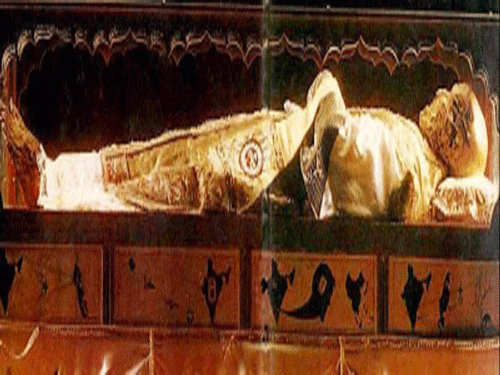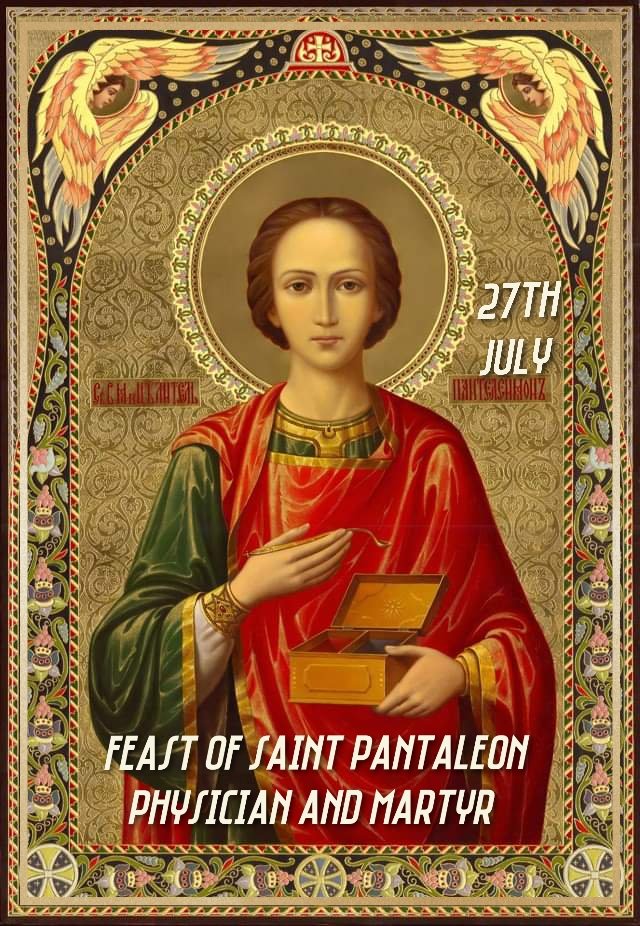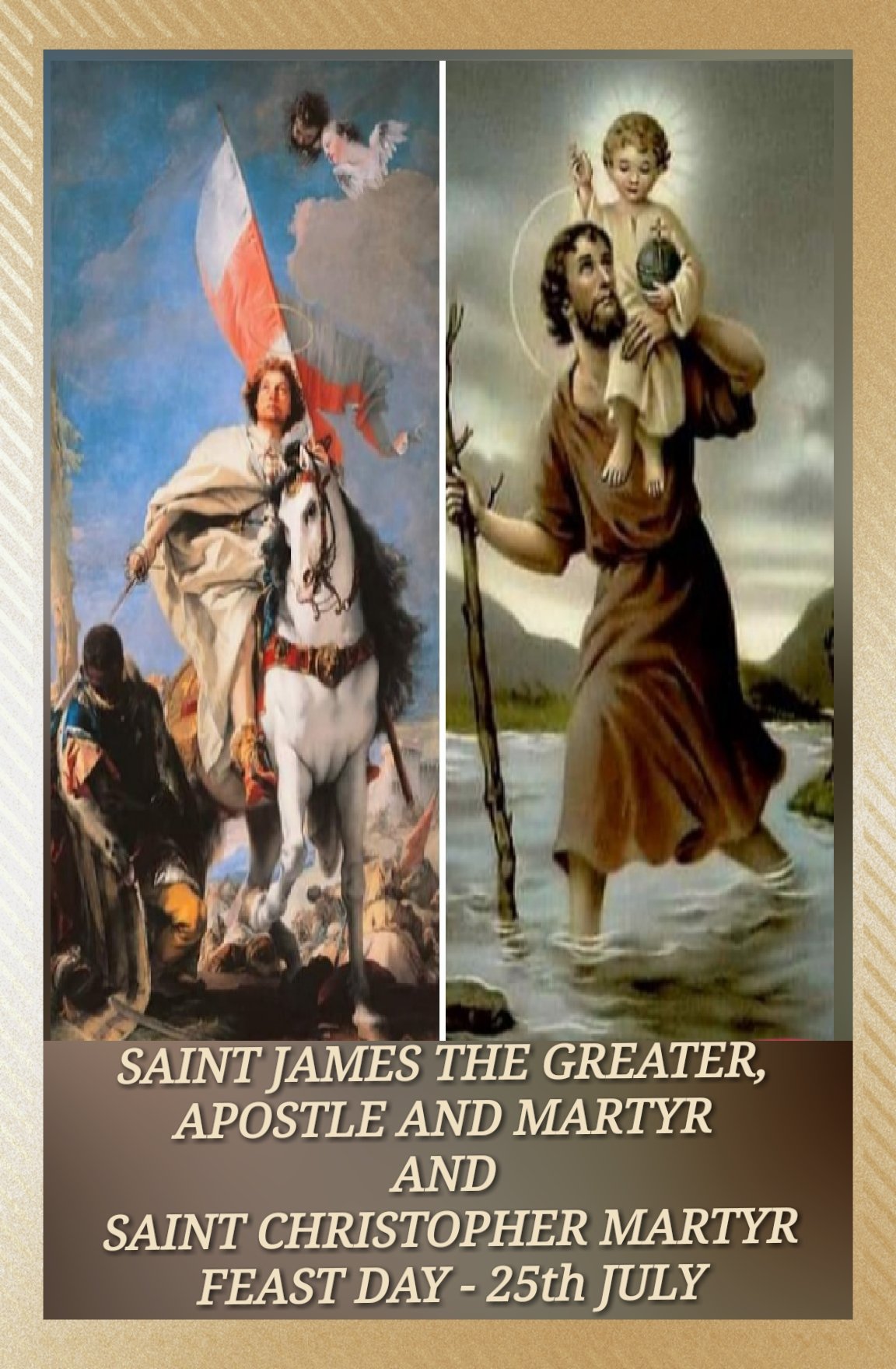
Ephesians 2: 8-9
December 2, 2021
1 Peter 5:7
December 3, 2021FEAST OF SAINT FRANCIS XAVIER
FEAST DAY – 3rd DECEMBER
Francis Xavier was born in the royal castle of Xavier, in the Kingdom of Navarre, on 7 April 1506. He was the youngest son of Juan de Jasso y Atondo, who belonged to a prosperous farming family. Juan later became a privy counsellor and finance minister to King John III of Navarre. Francis’ mother was Doña María de Azpilcueta y Aznárez, sole heiress of two noble Navarrese families. He was through her related to the great theologian and philosopher Martín de Azpilcueta.
In 1512, Ferdinand, King of Aragon and regent of Castile, invaded Navarre, initiating a war that lasted over 18 years. Three years later, Francis’s father died. In 1516, Francis’ brothers participated in a failed attempt to expel the Spanish invaders from the kingdom. The Spanish Governor, confiscated the family lands. Only the family residence inside the castle was left. In 1525, Francis went to study in Paris at the Collège Sainte-Barbe, University of Paris, where he spent the next eleven years.
In the early days he acquired some reputation as an athlete. In 1529, a new student, Ignatius of Loyola, came to stay. At 38, Ignatius was much older than Francis and his roommate Pierre, who were both 23 at the time. Ignatius convinced Pierre to become a priest, but was unable to convince Francis, who had aspirations of worldly advancement. At first Francis regarded the new lodger as a joke and was sarcastic about his efforts to convert students.
When Pierre left their lodgings to visit his family and Ignatius was alone with Francis, he was able to slowly break down Francis’s resistance. In 1530, Francis received the degree of Master of Arts, and taught Aristotelian philosophy at Beauvais College, University of Paris.
On 15 August 1534, seven students met in a crypt beneath the Church of Saint Denis (now Saint Pierre de Montmartre). They were Francis, Ignatius of Loyola, Alfonso Salmeron, Diego Laínez, Nicolás Bobadilla, Peter Faber from Savoy, and Simão Rodrigues from Portugal.
They made private vows of poverty, chastity, and obedience to the Pope, and also vowed to go to the Holy Land to convert infidels. Francis began his study of theology in 1534 and was ordained on 24 June 1537. In 1539, after long discussions, Ignatius drew up a formula for a new religious order, the Society of Jesus (the Jesuits). Ignatius’ plan for the order was approved by Pope Paul III in 1540, the year King John of Portugal had the Portuguese ambassador to the Holy See, request Jesuit missionaries to spread the faith in India, where the king believed that Christian values were eroding among the Portuguese.
After successive appeals to the Pope asking for missionaries for the East Indies under the Padroado agreement, John III was encouraged to recruit the newly graduated students who had established the Society of Jesus. Ignatius promptly appointed Nicholas Bobadilla and Simão Rodrigues. At the last moment, however, Bobadilla became seriously ill. With some hesitance and uneasiness, Ignatius asked Francis to go in Bobadilla’s place. Thus, Francis Xavier began his life as the first Jesuit missionary.
Leaving Rome on 15 March 1540, Francis took with him a breviary, a catechism, and De Institutione bene vivendi by Croatian humanist Marko Marulić, a Latin book that had become popular in the Counter-Reformation. According to a 1549 letter of F. Balthasar Gago from Goa, it was the only book that Francis read or studied. Francis reached Lisbon in June 1540 and he and Rodrigues were summoned to a private audience with the King and the Queen.
He led an extensive mission into Asia, mainly in the Portuguese Empire of the time and was influential in evangelization work, most notably in India. Although some sources claim that the Goa Inquisition was proposed by Francis Xavier, in his letter to the king of Portugal, John III, asked for a special minister whose sole office would be to further Christianity in Goa. He also was the first Christian missionary to venture into Japan, Borneo, the Maluku Islands, and other areas. In struggling to learn the local languages and in the face of opposition, he had less success than he had enjoyed in India. Xavier was to extend his missionary preaching to China, but died on Shangchuan Island.
Francis Xavier had devoted much of his life to missions in Asia, mainly in four centres: Malacca, Amboina and Ternate, Japan, and off-shore China which loomed large from his days in India. Japan was particularly attractive because of its culture. Much of the next three years he spent on the southeastern coast of India among the simple, poor pearl fishers, the Paravas. About 20,000 of them had accepted baptism seven years before, chiefly to secure Portuguese support against their enemies; since then, however, they had been neglected. Using a small catechism he had translated into the native Tamil with the help of interpreters, he continued his evangelization.
After his death on his way to China, his body, which was buried on an island in February 1553 was removed and taken to Malacca where it was buried at a church for a month. Then one of his companions moved his body to his own residence for the rest of the year. In December, his body was moved to Goa. Xavier remains buried in a silver casket enclosed in a glass case. Several of his bones have been removed. His right arm, used to bless converts, is on display in Rome. Another arm bone is kept on Coloane island, in Macau, which today is part of China.
He was beatified by Pope Paul V on 25 October 1619 and canonized by Pope Gregory XV on 12 March 1622. In 1624, he was made co-patron of Navarre. Known as the “Apostle of the Indies” and “Apostle of Japan”, he is considered to be one of the greatest missionaries since Paul the Apostle. In 1927, Pope Pius XI published the decree “Apostolicorum in Missionibus” naming Francis Xavier, along with Thérèse of Lisieux, co-patron of all foreign missions. He is now co-patron saint of Navarre, with Fermin. The Day of Navarre marks the anniversary of Francis Xavier’s death, on 3 December 1552. He is patron of missionaries and of India.
PRAYER TO ST. FRANCIS XAVIER
O devoted servant of God Saint Francis Xavier, your heart was burning with love for Jesus, impelled by this love, you went from country to country and spent yourself unto death, proclaiming the name of Jesus and the Good News of Salvation. That is why the Father filled you with glory in heaven and preserved your body from corruption here on earth. Filled with joy for these unique gifts, we join you in praising the Father.
And now we ask your intercession for ourselves (each make his/her petitions privately). We ask you to obtain for us the fulfillment of these desires if they are pleasing to the Father. And for everything together with you we praise the Father, through Jesus in the Spirit, Amen.

(Bom Jesus, Goa prayer)




2 Prayers
Amen to the above prayer to St Francis Xavier ! Thank you St Francis Xavier for proclaiming the Name of Jesus and spreading the Good News of Salvation in different parts of the world with real devotion. Please intercede and pray for us all. In Jesus’ Name we pray, AMEN
?✝️❤️?️
in different parts of the world.
Amen to your beautiful prayerful response to St Francis Xavier,…. in the Name of Jesus! Praise the Lord.. ??❤